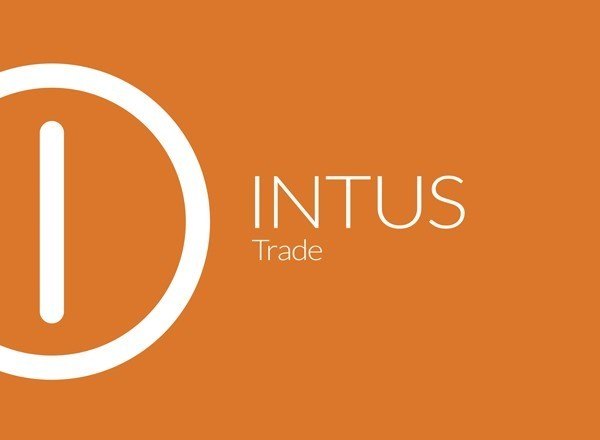B2B eCommerce
and ERP integration challenges
Open source eCommerce platforms like Magento and WooCommerce are unsuited to effective ERP Integrations
ERP system integrations
Integrating an ERP system with your eCommerce website is a significant challenge, because it will cost you money and represent a critical investment in the future of your business. ERP integration is so vital to successful eCommerce operations that getting it wrong risks not just a failed project but serious damage to your business and a brake on growth.
Get it right and the transformational benefits of real time connection, automation, simplification and synchronisation will be yours. With accurate and reliable information at your fingertips, quicker and better decisions can be made and new markets and channels opened up more easily.
INTUS by Iconography
We find that businesses wanting to sell to other businesses via eCommerce need to be approached with a different mindset than conventional B2C eCommerce projects. It's never a 'one size fits all', INTUS offers a service that's built to fit your needs.
Software complexity
Enterprise Resource Planning (ERP) software, even on it’s own, is complex because it is designed to do the “heavy lifting” in busy and successful companies. The complexity of ERP software derives from the fact that it is usually the backbone of your company’s IT infrastructure. Multiple departments and functions will use ERP to account for sales and purchasing, monitor and manage manufacturing processes and materials, define product pricing and profit margins, get visibility on inventory and plan shipping.
What’s more, whichever ERP you use, SAGE, SAP or another, it’s a fact that no two implementations are ever the same, making your ERP installation unique to your company’s needs and workflows. The same could also be said for eCommerce software configurations and setups as they are all slightly tweaked using different modules and plugins. What this uniqueness means is that your eCommerce and ERP integration will also be unique and as such requires careful handling.
So, where to start?
Because of this, open source eCommerce platforms like Magento and WooCommerce are not the best place to start an eCommerce/ERP integration. Why? Fundamentally it’s because of a lack of control. The very nature of open source eCommerce platforms and the requirement for an agency or contractor, who are not the architects of the system, to configure the code means that the ability to manage the complexity of an integration is simply not available to them.
It means your integration is only as good as the team currently working on assembling the combination of open source code and generic plug-ins that they hope might do the job. Iconography has won competitive pitches with clients when perfectly capable Magento build agencies have simply run out of options and lose the ability to say yes. Their inability to modify the core code and the unreliability of both middleware and plugins, meant they couldn't confidently guarantee to deliver the complexity of what was required by the client.
And here's a key factor in the difference between a failed and a successful eCommerce and ERP integration: knowledgeable agency support staff who have completed successful integrations with a variety of ERP systems by configuring proprietary eCommerce code that their development team have complete knowledge and control of. A responsible Open Source deployment agency will give you “best advice” and tell you when the platform can’t deliver and gracefully withdraw. Unfortunately, many don’t and their sales people will promise you things can be done, even when they can't; the crunch comes later on, when the project fails.
Agency experience and approach
So a successful eCommerce/ERP integration requires a commitment from your suppliers, of both ERP and eCommerce software, to understand precisely what your particular needs are and how they differ from the last integration project they completed. For our client, Turners Retreat, there’s a reasonably simple order export and stock import into their SAP instance. But the integration needs of the same SAP software are very different with our bed retailer ‘And So To Bed’, where the complexity of their product options requires the eCommerce/ERP integration to handle items with literally billions of possible combinations.
The best solution is the one that emerges from a series of agile build, trial and testing cycles
So, as well as having skilled and capable programming teams, the vendor’s project team must know the right questions to ask. They need to be able to see a bigger picture and work to the same business improvement goals as you are. At the very least, they will need to gain an understanding of the function of the eCommerce website in the context of the ERP, and be able to design the details of the integration to meet the existing needs of your business - rather than imposing unnecessary new workflows and data demands on your team.
If your suppliers have the right mix of heavyweight programming skill, proprietary code and a committed project management team then being “agile” in your methodology and approach is another key element of a successful eCommerce/ERP integration. Agile methodology is a type of project management and software development process where the precise requirements emerge and solutions evolve through the collaborative effort of self-organizing and cross-functional teams and their customers. That means you don't have to think of everything from the start, writing it into a detailed specification. And the best solution is the one that emerges from a series of, ‘agile’, build, trial and testing cycles.
Trusted to deliver online solutions
The ideal integrated relationship between ERP and eCommerce delivers a two way flow of real time data and is fundamental to delivering the many benefits. We know this because we deliver it for our customers every day of the week.
And you won't be surprised to learn that our project teams have extensive experience with ERP integrations. Our cross-functional team works closely with you to understand your needs and, being agile, produce a fully rounded and comprehensive solution.
Because of this commitment and success we have multiple repeat projects from our innovative B2B clients who trust us to deliver online solutions tailored to fit their evolving needs and existing business processes.
If you’re interested in exploring how our B2B solution can integrate successfully with your ERP contact the team here.
We are Iconography
We don't just build an eCommerce website for our B2B customers; we work with you to understand your needs and produce a fully rounded solution.
Our innovative B2B clients challenge and trust us to deliver online solutions tailored to fit their existing business processes, providing a solid foundation and bridge to the future.
A team of seasoned eCommerce and omnichannel specialists, a dedicated group of digital artisans. We've been building profitable, high performing eCommerce and omnichannel businesses for our clients since 1997.
If you’re interested in exploring how our B2B solution can take you to the next level contact the team here.


Custom B2B eCommerce
We understand how to structure eCommerce for trade customers. INTUS Trade provides the specific stock, lead time and product information they need and the pricing, promotion, ordering and delivery options necessary to ensure all our trade sites are a useful resource which supports customers and adds real value.
24th August 2021
The team were always able to answer any questions we had and any issues we come up against were resolved
Craig Silvain, BM Steel
Get in Touch